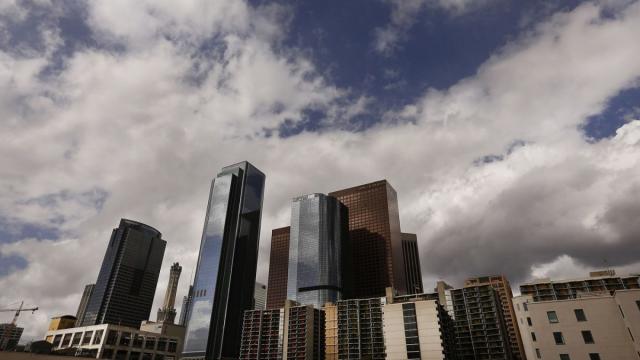
With all that’s at stake in the midterm elections, Los Angeles voters would be forgiven for overlooking Charter Amendment B, a referendum that would amend the city charter to conform with an ordinance the City Council enacted earlier this year.
But Charter Amendment B is no municipal snoozer. It proposes the most fundamental change to our economic system that Angelenos have ever had the opportunity to vote on. The amendment would allow for the creation of a Bank of Los Angeles: a public bank to be operated by and for the city.
Currently, when L.A. collects tax revenue, that revenue does not immediately flow back out to pay city employees. Instead, the revenue is deposited into one of several mega-banks, to be withdrawn when the city needs the funds. This spring, the city’s portfolio came to $9.5 billion. We’re not talking chicken feed.
L.A. has already withdrawn its funds from Wells Fargo, whose steady stream of abusive and fraudulent practices compelled the bank to pay billions in fines in recent years. But the alternatives — the other Wall Street behemoths that brought us the 2008 crash and saddled us with the Great Recession — also have a deference to shareholders and commitment to bonuses that exceed any interest they may have for the well-being of L.A.
Last year, a group of concerned Angelenos who’d formed an advocacy organization, Public Bank LA, began talking to the City Council about establishing a municipal bank. They pointed to North Dakota, which since 1919 has had a state-owned bank that is used to make loans to businesses and farms.
No out-of-state loans, no crazy debt swaps, no bets on Tesla futures — just solid investments in North Dakota’s economy. As a result of its public bank, North Dakota has the highest lending per capita of any state. Just as important, the state bank turned a profit for every one of the past 14 years, a claim Wall Street’s giants can’t make.
Public Bank LA also pointed to the example set by Germany, where more than 400 municipal savings banks, staffed by professionals but under the control of local governments, have significantly bolstered that nation’s economy.
Prohibited by law from making out-of-town investments, these local banks, into which most Germans regularly deposit their paychecks, have funded the country’s fabled Mittelstand, the small- and medium-size manufacturers that are the backbone of the German economy. Municipal banks have enabled Germany to preserve and upgrade its manufacturing sector and maintain a lot more of its middle class than we have.
By contrast, our giant banks have been leading proponents of offshoring manufacturing, rewarding their shareholders and deal-makers at the expense of domestic investment and worker wages.
Given Wall Street’s role in creating a recession that gutted the economy and ruined the lives of millions of Americans, it’s not surprising that a number of cities across the county, and even several states, are now considering establishing publicly controlled banks.
Democrat Phil Murphy was elected governor of New Jersey last year on a platform that included establishing a state bank. And groups in six California cities have joined with Public Bank LA to form the California Public Banking Alliance.
One does not generally think of the L.A. City Council as the vanguard of a movement for a more democratic economy, but earlier this year it voted unanimously to establish a city bank. Now voters will decide whether to let that ordinance come into effect.
Critics have complained that the path to establishing a city bank will be long, with many hurdles to clear. It will require legislation — in Sacramento and possibly in Washington as well — and a sufficient level of capital, insurance and collateral.
But any new public enterprise is likely to encounter such obstacles. Newness has been California’s stock in trade since its founding, and when accompanied by talent and judgment, innovation has produced many of the state’s signature enterprises.
No serious look at L.A.’s housing supply or its small-business climate would give anyone the impression that our existing mega-banks are interested in making the city great again. That will require a dedicated commitment to local investment. One clear way to help that happen is to vote “yes” on Measure B.
















